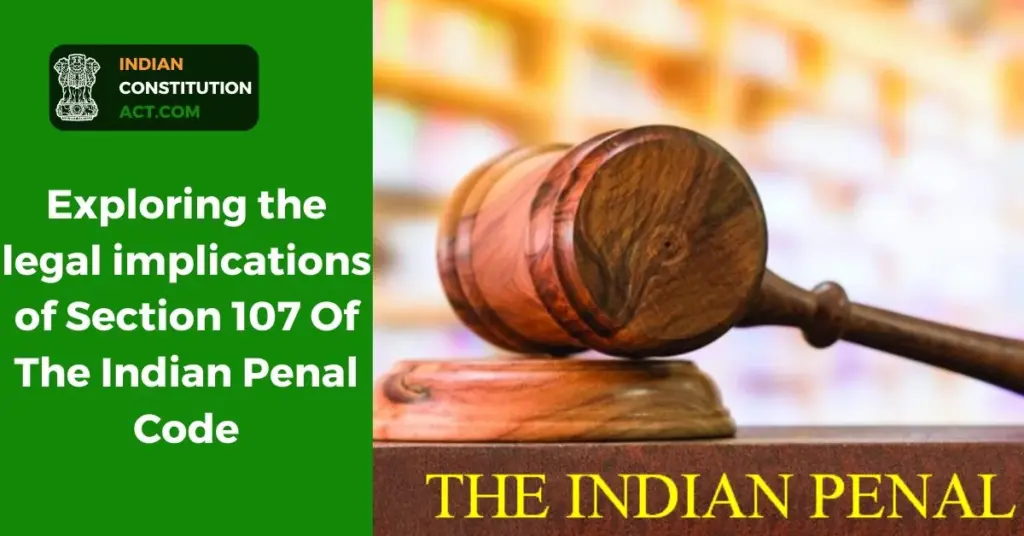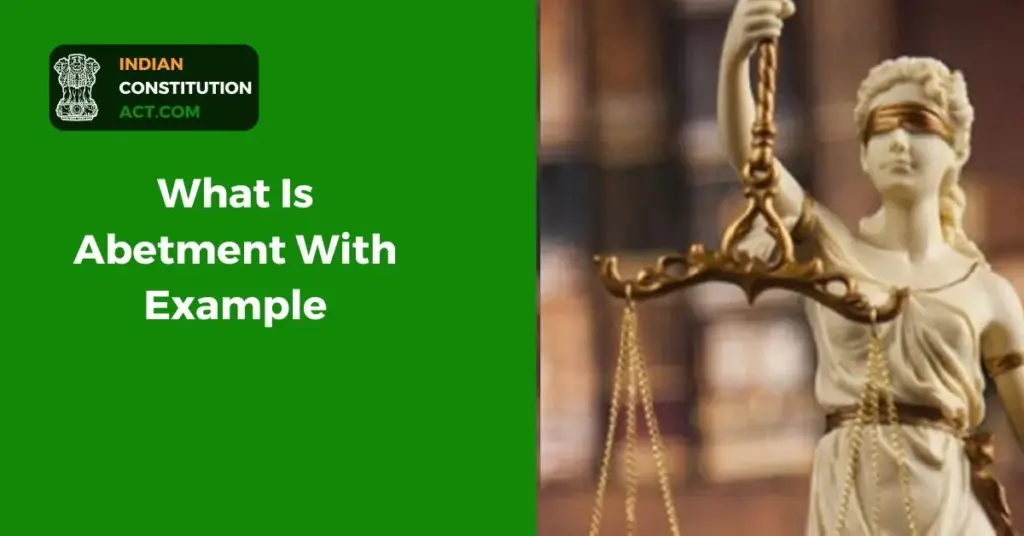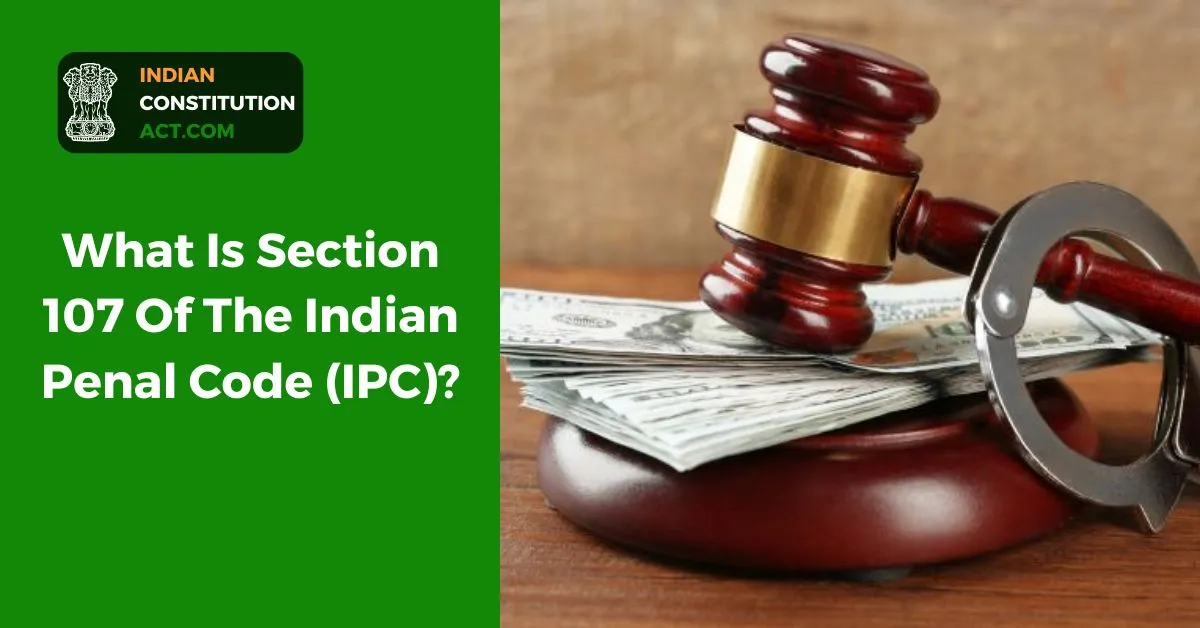Any crime done by an individual or a group comes under the Indian Penal Code (IPC). In some cases, there are some people or individuals who provoke or encourage someone to perform criminal activity will be punished. Additionally, if someone helps the accused in doing an illegal act then he/she will also get punished under Section 107 of the Indian Penal Code as abetment.
Chapter 5 of the IPC, 1860 informed about abetment, and in it everything regarding this is mentioned. In India, if someone helped or instructed the criminal in performing criminal activity then he/she can not take the help of ‘guilty act/actus reus’ to be safe from the criminal charges linked with the crime.
Table of Contents
Exploring the legal implications of Section 107 Of The Indian Penal Code

You should know that IPC Section 107-120, 1860 informs about the offense of abetment and its charges in detail. There are major 4 phases of crime, and we have discussed all 4 below:
Intention
As a human being, we all have some intentions in our minds, and as we are human beings if we do something illegal, we are liable to serve charges as per IPC. In simple words, we have the sense to think about what is right and what is wrong. But we perform each activity with some intentions that originated because of particular circumstances. We see many times good people with proper knowledge of the law think like criminals. If there is such kind of criminal intention/ men’s rea behind it. As we all are human beings, we can not make sure what the accused was thinking while performing that illegal thing. So, in this case, it is not possible to prove criminal liability.
Preparation
What is the first thing that comes to your mind when you read the word preparation? What might the criminal have done before committing the crime? Yes, preparation refers to the structure and idea of performing the illegal activity. The foremost thing to know is that preparation does not come under any IPC law because no one can prove that the accused has done all this preparation for the particular crime or not. An opportunity is given to withdraw from a contract or obligation before its completion. In simple words, the person has the opportunity to step back from the criminal activity before it is finalized.
Attempt
After intention and preparation, now it has come to attempt. So, what is an attempt? Intention and preparation become an attempt and later convert into a particular crime. Yes, an attempt can also be described as a prior crime to decide the criminal penalty of a person. There is a very minor difference between attempt and preparation, and to know that difference there are some tests such as locus poenitentiae, proximity test, social danger test, and equivocality test.
Commission
Any illegal activity is completed only when it is done. Because it is not possible to prove the crime immediately if it is not done. And when a crime is committed, then there are many laws in the Indian law to give punishment for it. A criminal deserves punishment only when he commits an illegal act and causes harm to someone.
Also read: What Is Article 17 Of The Indian Constitution?
What Is Abetment With Example

For illustration: If person ‘A’ leads or provokes person ‘B’ to harm person ‘C’. But ‘B’ says no to do so. Then ‘A’ is going to get criminal offense charges. And if ‘B’ obeys ‘A’ and causes grievous hurt to ‘C’, then, in this case, both ‘B’ and ‘A’ will be held guilty and both will get appropriate punishment.
Essentials of abetment under Section 107 Of The Indian Penal Code
As prescribed under Section 107 Of The Indian Penal Code of the Indian Penal Code, abetment includes the following three acts:
Abetment By Instigation With Example
The person who gives bad advice, as well as good advice to another person, is said to be the one who suggests another person do some illegal activity in any manner, clearly or correctly, so that there is a hope of keeping some important thing a secret.
For example: Krishna has been having a dispute with Ram for a long time over a piece of land, and Krishna wants to take Ram’s land in his name in an illegal way. Then Krishna goes to Radha and asks her to force Ram to sell the land, and Radha does not know what is the reason or thinking of Krishna behind it. For this reason, Radha keeps on instigating Ram to sell that part of the land. In this case, Krishna is the culprit, because Ram was not aware of Krishna’s conspiracy. So, Krishna will get punishment for this act and this act comes under Section 107 of the Indian Penal Code.
